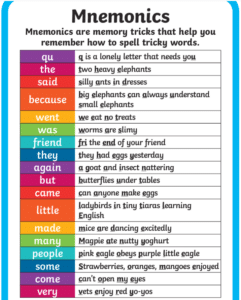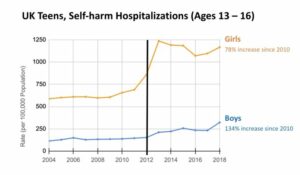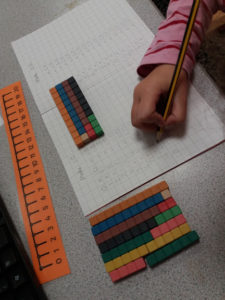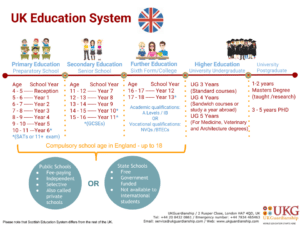20th Anniversary Party Portsmouth Centre
A Day to Remember: Celebrating 20 Years of Learning in Southsea

On Saturday 28th July, we marked a truly special milestone — the 20th anniversary of I Love to Learn! What began in 2005 as a small, family-run tutoring service in Southsea has grown into a thriving community of learners, teachers, and families across Portsmouth, Fareham, and Havant.
We were honoured to celebrate this occasion with so many of you at our Portsmouth Centre. A heartfelt thank you to all the parents, children, tutors, and friends who joined us — your support over the years is what made this celebration possible.
A highlight of the day was the visit from the Lord Mayor and Lady Mayoress of Portsmouth, who joined us for cake-cutting, a lively spelling bee, and plenty of fun. Their presence made the event all the more memorable, and we’re incredibly grateful they took the time to support our work with local children.
From the smiling faces of students past and present to the warm conversations with parents and tutors, the day was full of joy and reflection. We had games, refreshments, memory boards, and even a few surprises — all to honour the incredible journey we’ve been on together over the last two decades.
Looking Back on 20 Years
When we — Howard and Linda Jones — launched I Love to Learn in 2005, it was with a simple but powerful aim:
- To help children grow in confidence through learning
- To support families with integrity
- And to be honest about what children really need to succeed
We started with just a handful of local students and a big dream. Today, we’re proud to operate three vibrant centres and work with a team of tutors who share our values and passion.
Tutors like Grazia Naylor in Fareham, and David Byrne, Adam Ashworth, and Maxine Burch in Portsmouth bring not only subject expertise but also genuine care and commitment to every child they teach. Their work, and the trust you place in us as parents, is what allows us to keep making a difference.
Our Promise to You
At I Love to Learn, we remain committed to the principles that got us started: honesty, personalised support, and a deep belief in each child’s potential. We’re not about gimmicks or grand promises — we’re about doing the right thing, one student at a time.
As we celebrate this 20-year milestone, we’re also looking ahead — to continue growing, improving, and helping children become confident, capable learners who can take on the world.
Thank You
Whether your child came to us this year or ten years ago, whether you’ve stayed for a few months or many years — thank you. Your trust and partnership mean everything to us.
And to the Lord Mayor and Lady Mayoress of Portsmouth: your presence and kind words were a great encouragement to all who attended. Thank you for helping us mark this milestone with such grace and warmth.
Here’s to the next 20 years of learning and growing together!
With heartfelt thanks,
Howard & Linda Jones
Co-founders, I Love to Learn
www.ilovetolearn.co.uk/free-assessment
Helping children love learning since 2005
Finding the Best School for Your Child
A Quick Guide to Choosing the Right School
A child’s education is a very high priority for most parents, but there are so many considerations. Of course, fees, cost of travel, and maybe even moving house have to be taken into consideration. This is a very big topic, so here are some suggestions.
Research: What Are the Options?
 School type, cost, location, and culture—there are many factors to consider, so it’s time to make a list. It will need to be affordable, although do not despair; many private schools offer scholarships to the right candidate. If you are thinking of a fee-paying school, make sure you find out exactly how to apply for a scholarship and what the criteria are, as it will vary from school to school. Of course, you will want to choose the best school academically, but there are lots of other considerations.
School type, cost, location, and culture—there are many factors to consider, so it’s time to make a list. It will need to be affordable, although do not despair; many private schools offer scholarships to the right candidate. If you are thinking of a fee-paying school, make sure you find out exactly how to apply for a scholarship and what the criteria are, as it will vary from school to school. Of course, you will want to choose the best school academically, but there are lots of other considerations.
For all school choices, it is important to do your research. This is much easier nowadays with so many great websites:
– Locrating
– Good Schools Guide
– School Performance Tables
Talk About It: Time for a Family Meeting
If the child is older, you might want to consult with them. Where are his or her friends going? Is there a sport he or she wants to play? Where do most students go on to afterwards? Again, the emphasis needs to be on matching the child’s needs to the school, so make sure it is clear that is the aim. Of course, it will be up to the parents to make the final decision, but it is usually good to hear everyone’s opinion.
Visit, Ask, and Meet
There is no substitute for visiting an institution to get the feel of it. Go on the open days, talk to the pupils and teachers, and ask as many questions as possible. This will give you a lot of ‘soft’ information about the ethos and culture which you can’t pick up from a glossy brochure. Are the students confident to answer questions? Do they respect the teachers, and what kind of expectations do they have?
You do not want to feel that you are fighting against the school ethos when you visit and talk to teachers. Your child is going to spend a lot of time at school, which you hope will have a very positive influence on them for much of their early life.
—
Summary
Choosing the right school for your child involves considering various factors such as cost, location, and school culture. Begin by researching your options using online resources, and don’t forget to look into scholarship opportunities. Engage in family discussions to ensure the school meets your child’s needs and aspirations. Finally, visit schools, talk to students and teachers, and ask plenty of questions to get a true sense of the school’s environment and values.
What is a T-Level Vocational Qualification?
Explaining T-Level Qualifications
 The T-Level qualification is a new technical education route introduced in the UK, designed to offer students a vocational alternative to A-Levels. You may have heard of BTECs which they are designed to replace. The T-Level is designed to give 16-18 year olds more work experience and more access to challenging vocational qualifications. The main difference is the amount of time the qualification allows for students to work in industry.
The T-Level qualification is a new technical education route introduced in the UK, designed to offer students a vocational alternative to A-Levels. You may have heard of BTECs which they are designed to replace. The T-Level is designed to give 16-18 year olds more work experience and more access to challenging vocational qualifications. The main difference is the amount of time the qualification allows for students to work in industry.
T-Levels are two-year technical courses that combine classroom learning with industry placements. They were introduced to provide young people with practical skills and experience needed to succeed in the workplace. T-Levels were launched in September 2020, with the aim of offering 25 different subjects by 2023.
Example Subjects
Digital Production
Agricultural, Environmental and Animal Care
Catering and Hospitality
Construction
Creative and Design
Health & Science
Education and Childcare
Sales, Marketing Procurement
Engineering and Manufacturing
Business Administration
Legal, Finance Accounting
Strengths
1. Industry-Relevant Skills: T-Levels are designed in collaboration with employers to ensure that students gain the skills and knowledge needed in the workplace.
needed in the workplace.
2. Work Placement: Each T-Level includes a substantial work placement, giving students real-world experience and helping them build valuable connections in their chosen industry.
3. Clear Pathways: T-Levels offer clear pathways to employment or further study, providing students with a direct route into their chosen career.
4. Recognition: T-Levels are recognised by many universities and employers, providing students with a credible qualification.
Summary
T-Levels are still relatively new, and there may be some stigma attached to vocational education compared to traditional academic routes like A-Levels. Some students have been disappointed that they have not been as widely accepted by universities as promised. While there are plans to expand the range of subjects available, the initial offering of T-Levels is limited compared to the wide range of subjects available through A-Levels. This has improved more recently with the release of more qualifications, however, the resourcing and teaching of each subject my vary.
It is will be important for students and parents to make sure that the course they apply to has good quality teaching and is properly resourced. Also, be aware that students will need to do 315 hours of work placement. These placements are an important part of the course, but again may vary in quality. Make sure the institution is well organised to place students is appropriate positions as this will have a big impact on the student’s experience.Overall, T-Levels offer an innovative approach to technical education in the UK, providing students with valuable skills and experience to succeed in their chosen careers. However, there are still challenges to overcome in terms of implementation and perception.
Fun Spelling Rules
Making Spelling Fun
One of the ways we can help students with their English is by having some fun with some commonly misspelt words. In many exams marks are allocated for spelling, it also builds confidence to know that you have spelt a word correctly without resorting to spellchecker.
I had a rather eccentric school English teacher who believed that if you could spell ACCOMMODATION (two C’s and two M’s) you would pass your O level and he made the whole class recite it most lessons.
 Alternatively you could just test each other over a meal or on the way to school, we all love a challenge and the rules mean ‘no phones’.
Alternatively you could just test each other over a meal or on the way to school, we all love a challenge and the rules mean ‘no phones’.
Here are a few you might want to test each other on:
SEPARATE is a tricky word, two A’s separated by a P.
Big Elephants Are Usually BEAUtiful.
I before E except after C applies to BELIEVE, FRIEND and RECEIVE.
You can DEFINITELY find the word with FINITE in it.
Do you go Really Red And Smile Shyly when EMBARRASSed?
You certainly do if you are caught short with DIARRHOEA, you need to Dash In A Real Rush, Hurry Or Else Accident.
You can even put some words to music as RHYTHM Helps You To Hear Music.
Give it a go, no need for a special OCCASION (although if it is you’ll need to travel over two seas (C’s) to get to it.
To enhance students’ spelling, incorporate fun practices with tricky words, as exam scores often include spelling accuracy, boosting confidence without spellcheck reliance. An eccentric English teacher swore mastery of “ACCOMMODATION” ensured exam success. Engage in spelling challenges during meals or commutes without phones. Practice words like “SEPARATE,” with mnemonic aids like “Big Elephants Are Usually BEAUtiful” for “BEAUTIFUL,” and the rule “I before E except after C” for words like “BELIEVE.” Reminder mnemonics for “EMBARRASSED” and “DIARRHOEA” can assist recall, as can setting words like “RHYTHM” to music. Use these techniques anytime, not just for special occasions.
Why Are They Banning Mobile Phones?
Why Schools are Banning Mobile Phones and What You Need to Know
You might have caught wind of the new guidance from the government in the news or through other parents, but what’s the fuss about? The guidance says that the government backs headteachers who choose to ban mobile phones from the school premises from Feb 19 2024. Is your headteacher clamping down on phone use, and what does it mean for your child? Let’s break it down.
 Firstly: Why are schools banning mobile phones? Well, it turns out there’s a lot more to it than just a knee-jerk reaction to the latest tech craze. In fact, researchers like Anderson and Jiang have been shedding light on the impact of excessive screen time on children’s mental health.
Firstly: Why are schools banning mobile phones? Well, it turns out there’s a lot more to it than just a knee-jerk reaction to the latest tech craze. In fact, researchers like Anderson and Jiang have been shedding light on the impact of excessive screen time on children’s mental health.
So, what’s a concerned parent to do? Here’s what you need to know:
Teachers have the authority to confiscate mobile phones in schools from your child, so it is important to be aware of this. If you child needs a phone for essential communication outside schools, you may need to make an arrangement with the school. Many schools allow children to drop off their phone at the beginning of the school day at the school office.
1. **Distraction Detox:** One of the primary reasons schools are banning mobile phones is to minimise distractions in the classroom. It’s no secret that a buzzing phone can derail even the most focused student. By limiting phone use during school hours, educators hope to create a more conducive learning environment.
2. **Social Connection vs. Social Media:** Many teachers have noticed that heavy screen use has reduced children’s ability to communicate face to face. They are reading less and are poorer at explaining and describing. It has been suggested that children (and adults) are now more use to showing each other images, rather than describing events or ideas. It is easier to show each other funny memes that tell each other funny jokes.
3. **Digital Detox Benefits:** There is now a great deal of evidence that heavy Social Media use has a negative impact on metal health, especially in girls. As girls are very socially aware and sensitive to social status, the contstant comparison and perfected images on sites like Instagram can anxiety inducing. In fact Facebook’s own research showed this! By encouraging students to disconnect during school hours, educators are promoting healthier habits and teaching valuable life skills for managing screen time responsibly.
Haidt, a social psychologist and author, has highlighted the detrimental effects of constant smartphone use on young minds. From increased anxiety and depression to decreased attention spans and social skills, the evidence is mounting against unrestricted phone access for kids.
In conclusion, the decision to ban mobile phones in schools isn’t about demonising technology but rather about promoting a healthier relationship with it. By working together with educators and taking proactive steps to manage screen time, we can help our children thrive both in and out of the classroom.
So, the next time you hear about your child’s school implementing a mobile phone ban, remember that it’s not about restricting freedom but about creating a better learning environment for everyone. Let’s embrace the opportunity to disconnect, engage, and prioritise our children’s well-being in this digital age.
How Can TV Interfere WithYour Child’s Learning?
Does TV Help or Hinder?
Most homes nowadays have more than one TV screen. They are part of the furniture and have been for two or maybe three generations. My dad was a TV repair man, so we were never without one when I was a child!
However, at our education centre we advise parents to take the TV out of children’s rooms. For children to develop vocabulary, expression and story telling skills they need to read and hear stories. Our experience is that TV does not help this process.
Some researchers have found that watching television can result in delayed development, emotionally and mentally. In fact it is recommended that before the age of 2 children should not watch television at all! Let’s look at why;
- TV replaces interactive learning experiences which are vital in the early years.
- TV overloads the visual part of the brain, depriving other areas such as, creativity and imagination.
- TV uses too many fast paced images, which means children find it difficult to be patient and focus for any length of time.
- TV does not need a response, no skills are needed and so none are developed. Important skills such as planning and judging are neglected
- TV interferes with building relationships and interacting with real people.
- TV replaces physical activity with sedentary, leading to unhealthy lifestyle habits.
This is hard for us parents to take because as we all know TV is also the best babysitter the world has ever known! So what can we do? Well, here are some suggestions;
- Keep under twos away from the TV!
- Limit viewing, no more than one or two hours a day
- Choose programmes and DVDs which you think are suitable (monitor the violence and content).
- Absolutely no TV in any bedrooms as this has an impact on sleep.
- Watch and discuss together, promote a critical approach to what they see.
- Think of alternative activities.
As children grow and learn they need interactive experiences with their physical surroundings and people. A screen wastes precious time and does not provide these experiences. Children who watch television before the age of two often experience language delay and perform poorly later on at school.
Building Resilience
 Building Mental Resilience in Children
Building Mental Resilience in Children
The growing mental health crisis is a concern for all parents. All parents want to encourage their children to be resilient.
The pyschologist Jonathan Haidt has been doing a great deal of research in tracking the trends in child mental health. He see the changes in parenting in the 90s, along with the rise of social media and the almost universal ownership of mobiles phones by young children as the causes of the crisis.
Understanding Antifragility and Resilience
If we face a tough situation we can either move forward or run away. I read a book years ago call ‘Feel the Fear and Do It Anyway’. At the time I didn’t really understand it, but looking back I realise that the only way to face your fears is to get braver. If you wait until the fear goes away it never will. If you watch ‘The Fear Factor’ the contestants often feel much better for facing their fear of spiders or whatever. This is why trigger warnings and other ‘fear’ markers are so unhelpful as they make us look for ‘danger’ rather than ‘keeping calm and carrying on’. It’s like building mental muscles through facing and overcoming challenges. Additionally, Haidt delves into the significance of resilience, highlighting the importance of children bouncing back from tough times and emerging emotionally stronger.
The Dangers of Coddling
One of the key aspects of Haidt’s work is the exploration of the dangers associated with overprotecting and shielding children from every obstacle. He addresses the detrimental impact of “coddling” and its potential to hinder the emotional growth of children.
Haidt’s identification of the three great lies –
“What doesn’t kill you makes you weaker,” e.g. stress or challenge may traumatise you which encourages catastrofising.
Instead, point out that we can’t get stronger without resistance. No challenge no growth!
“Always trust your feelings,” e.g. the whole ‘true to yourself’ thing.
Instead, try to revise negative feelings like ‘I hate maths’ into ‘I find maths difficult, but I am going to do my best’.
“Life is a battle between good people and evil people” – e.g. the world is a dangerous place of struggle
Instead, encourage them to see that no one is perfect and we can all learn and improve every day.
Nurturing a Balanced Environment
As parents, we’ve got a big role in this game. We need to create an environment where our kids can talk openly, take some risks, and learn from their challenges. It’s all about finding that balance between support and letting them spread their wings.
Help with ADHD Children
Help and Advice for Children with ADHD
Recently I read ‘The Boy Crisis’ by Warren Farrell, an American author who writes about family, the gender crisis and relationships. Whilst not all children with ADHD are boys, the vast majority are, and he had some interesting things to say on the topic.
Here are five tips, inspired by general advice for managing ADHD, that parents can consider.
1. Establish Consistent Routines:
– Create structured daily routines to help children with ADHD anticipate and manage their activities
– Consistent schedules for meals, homework, playtime, and bedtime can provide a sense of stability and predictability
2. Encourage Regular Exercise:
– Physical activity is known to have a positive impact on attention and behavior
– Engage your child in regular exercise, such as sports, biking, or swimming, to help channel excess energy and improve focus. It is important for parents to engage in activities with children. Especially in what we would call rough-and-tumble play with fathers. This, Farrell claims surprisingly, helps the development of empathy and confidence.
3. Limit Distractions:
– Create a conducive environment for concentration by minimizing distractions
– Designate a quiet study space, reduce screen time, and establish clear rules about electronic devices during homework or other focused activities
e.g. Devices must be charging after 6pm, no devices in bedrooms
4. Provide Clear Instructions:
– Break tasks into smaller, more manageable steps and provide clear, concise instructions.
– Using visual aids, charts, or written lists can help children with ADHD better understand and follow instructions.
e.g. Write some household rules together, have a behaviour chart related to homework.
 5. Implement Positive Reinforcement:
5. Implement Positive Reinforcement:
-Parenting styles can vary due to gender and family experience. It is important that parents work as a team in this.
– Recognise and reward positive behaviors to motivate and reinforce good habits.
– Offer praise, encouragement, or small rewards for completing tasks, demonstrating self-control, or following routines.
It’s important for parents to work closely with healthcare professionals, educators, and specialists to develop a comprehensive and individualized approach for managing ADHD. While these tips draw from general advice on ADHD, specific strategies for each child may vary based on their unique needs and circumstances. Always consult with professionals who specialize in ADHD for the most accurate and effective guidance.
Here our article on Understanding Learning Difficulties.
Dyscalculia
What is Dyscalculia?
Navigating your child’s educational journey can be a rewarding yet challenging experience. As your child progresses through school, you may encounter various learning differences. One such challenge is dyscalculia, a term you might have come across but might not fully understand. In this guide, we’ll explore what dyscalculia is, its possible indicators, and provide insights to help you support your child.
What is Dyscalculia?
Dyscalculia is a learning difficulty that specifically affects a child’s ability to acquire mathematical skills. Unlike a temporary struggle with a particular concept, dyscalculia is a persistent condition that hinders the development of basic arithmetic skills, number sense, and mathematical reasoning.
 Possible Indicators:
Possible Indicators:
- Difficulty with Basic Arithmetic:
- Struggles with basic addition, subtraction, multiplication, and division.
- Difficulty in understanding and remembering mathematical facts.
- Poor Number Sense:
- Struggles to grasp the magnitude of numbers.
- Difficulty in comparing numbers or understanding their order.
- Spatial and Temporal Challenges:
- Difficulty understanding and using concepts of time and space in a mathematical context.
- Struggles with understanding and using graphs and charts.
- Memory Challenges:
- Difficulty in recalling mathematical concepts and sequences.
- Struggles to remember and follow multiple steps in problem-solving.
- Difficulty in Learning Mathematical Concepts:
- Finds it challenging to understand abstract concepts such as fractions and percentages.
- Struggles with understanding and applying mathematical rules.
- Inconsistency in Mathematical Performance:
- Demonstrates an inconsistency in mathematical performance, performing well in some areas but struggling in others.
 Understanding the Rarity of Dyscalculia:
Understanding the Rarity of Dyscalculia:
While dyscalculia can present challenges, it’s essential to note that it is relatively rare. Estimates suggest that approximately 5-7% of the population may have dyscalculia. This means that, though challenging, your child’s struggles with mathematics may not necessarily be indicative of dyscalculia. It’s crucial to consider various factors, including teaching methods, individual learning styles, and the pace of learning.
Supporting Your Child:
- Early Intervention:
- If you notice persistent challenges in your child’s mathematical development, consider seeking early intervention.
- Speak to your child’s teacher about observations and concerns.
- Multisensory Learning:
- Explore different learning methods that engage multiple senses.
- Incorporate visual aids, hands-on activities, and real-life examples into mathematical learning.
- Patient and Positive Encouragement:
- Provide a positive and patient environment for your child to learn.
- Celebrate small victories and progress, fostering a positive attitude towards mathematics.
- Professional Assessment:
- If concerns persist, consider seeking a professional assessment from an educational psychologist or specialist.
Conclusion:
In conclusion, dyscalculia is a specific learning difficulty that affects mathematical skills, but it is relatively rare. If you suspect your child may be experiencing challenges in mathematics, it’s essential to approach the situation with understanding, patience, and a proactive mindset. By identifying potential indicators early and providing appropriate support, you can empower your child to navigate the world of mathematics with confidence and resilience. Remember, every child learns at their own pace, and with the right support, they can overcome challenges and thrive academically.
Navigating the UK Education System: A Friendly Guide for Parents
The UK Education System Explained (England)
Hello, wonderful parents! If you’ve ever found yourself scratching your head over the UK education system, don’t worry; you’re not alone. Understanding the ins and outs of Key Stages, infant schools, primary schools, secondary schools, and sixth form colleges can seem like deciphering a secret code. Fear not, though – we’re here to break it down for you in a friendly and digestible way. Although there may be exceptions to what follows (e.g. some counties still have Grammar Schools), this is how schools are divided in the majority of UK education authorities.
Key Stages 1-4: The Building Blocks of Learning
Let’s kick things off with Key Stages. These are like the chapters in your child’s education book, and there are four of them: Key Stage 1 (ages 5-7), Key Stage 2 (ages 7-11), Key Stage 3 (ages 11-14), and Key Stage 4/GCSEs (ages 14-16). Each stage has its own set of educational goals and milestones, ensuring your little one gets a well-rounded education.
 Infant Schools: Where the Journey Begins (Reception to Year 1)
Infant Schools: Where the Journey Begins (Reception to Year 1)
Picture this: your child, waving goodbye, stepping into the world of education for the first time. Welcome to infant schools, the start of the adventure! Here, in Key Stage 1, kids dive into the basics of reading, writing, and arithmetic. It’s a time of discovery and play, focused on the building blocks of learning.
Junior Schools: Nurturing the Growing Minds (Year 2-6)
As your little explorer advances to Key Stage 2, they enter the realm of primary schools. These are the places where subjects get a bit more specific, and the excitement of learning truly takes flight. From science experiments to creative writing, primary schools lay the groundwork for a love of learning. Plus, with the support of fantastic teachers, your child begins to uncover their unique strengths and interests.
Primary Schools: (Sometimes Infant and Junior Schools are combined) (Reception to Year 6)
In some areas, children complete Key Stages 1 and 2 in the same school.
 Secondary Schools: Teenagers and Textbooks (Year 7-11)
Secondary Schools: Teenagers and Textbooks (Year 7-11)
Hold onto your hats, parents – secondary school is here! Key Stage 3 introduces a wider range of subjects, allowing your child to explore areas they may not have encountered before. It’s a time of self-discovery, both academically and personally. As they dive into Key Stage 4, those all-important GCSEs come into play. These exams set the stage for future academic endeavours, so buckle up for a few years of hard work and achievements.
Sixth Form Colleges: The Bridge to Adulthood (Year 12-13)
After the whirlwind of Key Stages 1-4, your teenager reaches the crossroads: sixth form colleges. Here, in the magical realm of college, they specialise in a few chosen subjects, which may be vocational or academic, with a wide range of qualifications available, e.g. apprenticeships– A-levels, BTECs, or T-levels. These qualifications can open doors to universities and shape the path for future careers. It’s a time of increased independence and responsibility, where your child transforms from a student to a young adult.
In a nutshell, the UK education system is a journey. It’s the tale of your child’s growth, knowledge expansion, and the blossoming of their unique potential. So, to all the parents out there, fear not! Armed with this friendly guide, you’re ready to be the supportive co-pilot in your child’s educational adventure. Here’s to the exciting chapters ahead!
National Curriculum: Key stages
The National Curriculum was established in 1988, provides a framework for education in England and Wales for students between the ages of 5 and 18. While the National Curriculum is followed by most state schools, some private schools and academies design their own curricula.
| Key Stage | School Year | Age | ||
| Primary Education | 1 | 1 | 5-6 | Primary education begins at age 5 and continues until age 11. At the end of Key Stage 1 (year 2) and Key Stage 2 (year 6), pupils take compulsory SATs (Standard Assessment Tests). |
| 2 | 6-7 | |||
| 2 | 3 | 7-8 | ||
| 4 | 8-9 | |||
| 5 | 9-10 | |||
| 6 | 10-11 | |||
| Secondary Education | 3 | 7 | 11-12 | During Year 9, students choose which subjects to study at Key Stage 4. These will be the subjects they take for their GCSE (General Certificate of Secondary Education) exams at the end of year 11. |
| 8 | 12-13 | |||
| 9 | 13-14 | |||
| 4 | 10 | 14-15 | ||
| 11 | 15-16 | |||
| Further Education | 12 | 16-17 | At the end of students’ secondary education, they can either pursue academic qualifications such as A-Levels or IB in order to go to university, or vocational qualifications such as NVQs and BTECs to prepare them for full time employment. | |
| 13 | 17-18 | |||
| Higher Education | University | 17+ | To find out more details about applying to universities in the UK, please visit University Application. | |



